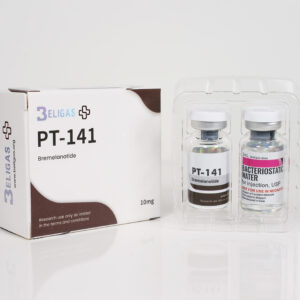


Bremelanotide, marketed as Vyleesi, is an FDA-approved treatment for hypoactive sexual desire disorder (HSDD) in premenopausal women. It works by stimulating melanocortin 1 and 4 receptors in the hypothalamus, areas tied to behavioral response and arousal, releasing dopamine to heighten desire. Taken around 45 minutes before anticipated sexual activity, this receptor agonist has shown potential to enhance desire while reducing associated distress. Though its full mechanism is still being researched, studies indicate that Vyleesi provides a targeted approach for women seeking a solution to low sexual desire with measurable improvements in arousal and satisfaction.
Hall, K. S. K., & Binik, Y. M. (2020). Principles and practice of sex therapy (6th ed.). The Guilford Press.
Paauw, D. (2024). Newer outpatient therapies and treatments, an issue of Medical Clinics of North America. Elsevier.
Stahl, S.M., 2020. Prescriber's Guide: Stahl's Essential Psychopharmacology. United Kingdom: Cambridge University Press.
Disclaimer: Information provided it this page is for general information only and does not substitute for professional medical advice.
For detailed information about PT-141 by Beligas Pharmaceuticals, consult with your doctor or healthcare professional.


Stahl, S.M., 2020. Prescriber's Guide: Stahl's Essential Psychopharmacology. United Kingdom: Cambridge University Press.

Stahl, S.M., 2020. Prescriber's Guide: Stahl's Essential Psychopharmacology. United Kingdom: Cambridge University Press.

Stahl, S.M., 2020. Prescriber's Guide: Stahl's Essential Psychopharmacology. United Kingdom: Cambridge University Press.